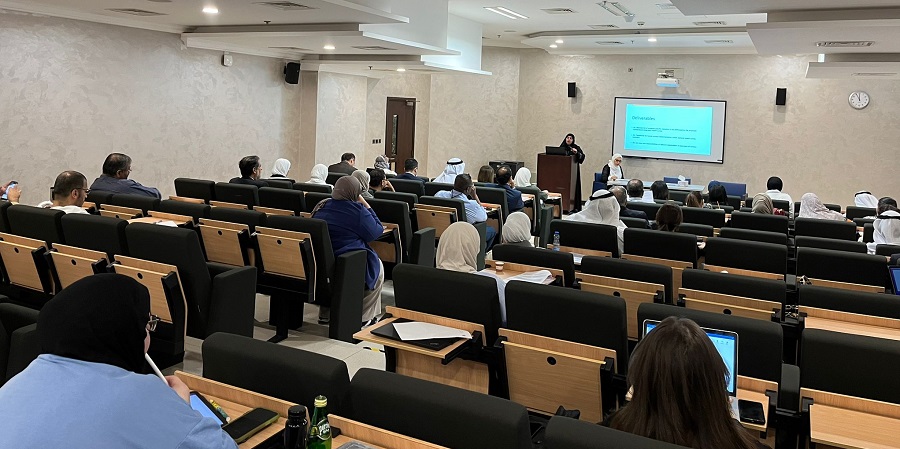
Kuwait, 20 November 2022 – The World Health Organization (WHO) and the Ministry of Health conducted an extensive workshop at the Kuwait Institute for Medical Specializations on 14–15 November to develop a national strategy for an integrated survey implementation plan for Kuwait.
The objectives of the workshop were to identify a list of health indicators, develop a national survey plan to be implemented by the government of Kuwait to measure identified indicators for better reporting of country progress. One of the deliverables also included development of a 10-year overarching plan for the conducting of surveys with timelines, intervals, types of indicators and responsible offices for each of the surveys. Capturing quality and standardized health data is important for Kuwait as it enables better planning, improved decision-making, appropriate use of resources and evidence-informed policy-making. It will also help to reduce the rate of noncommunicable diseases (NCDs), improve care to promote the health of the population and improve integration of data into decision-making processes.
Dr Hessa Al Kandari, Head of the Scientific Committee and Project Director of Kuwait National Population Health Survey, said, “We would like to thank WHO for their expertise and support in developing a national strategy for an integrated survey implementation plan that will cover all of the indicators of health determinants to develop prevention programmes to reduce the prevalence of diseases. This strategy will propose 25 indicators to track the progress of the action plan and the voluntary global targets for 2025. WHO will provide support in developing a framework that has been aligned with the Sustainable Development Goals to reduce the rate of NCDs in Kuwait.”
Dr Assad Hafeez, WHO Representative in Kuwait, added, “Developing a national strategy for survey implementation is crucial as it aligns all national stakeholders to a common goal and hence promotes better health for all. The national survey plan will include all the health-related key indicators of the population for the next 5 to 10 years, and promote health and well-being in Kuwait for all residents.”
WHO has been supporting the development of health surveys over the past years to ensure the collection of health data that is population representative and essential for effective planning, policy and practice. The WHO Country Office in Kuwait and regional teams have supported alignment of survey methodology to the regional guidelines to ensure that core health indicators are captured, allowing comparability of data across the 22 countries of the Eastern Mediterranean Region.
About WHO
Dedicated to the well-being of all people and guided by science, the World Health Organization leads and champions global efforts to give everyone, everywhere and equal chance at a safe and healthy life. We are a specialized agency of the United Nations for health that connects nations, partners and people on the front lines in 150+ locations, leading the world’s response to health emergencies, preventing disease, addressing the root causes of health issues, and expanding access to medicines and health care. Our mission is to promote health, keep the world safe and serve the vulnerable.
For further media enquiries, please contact:


